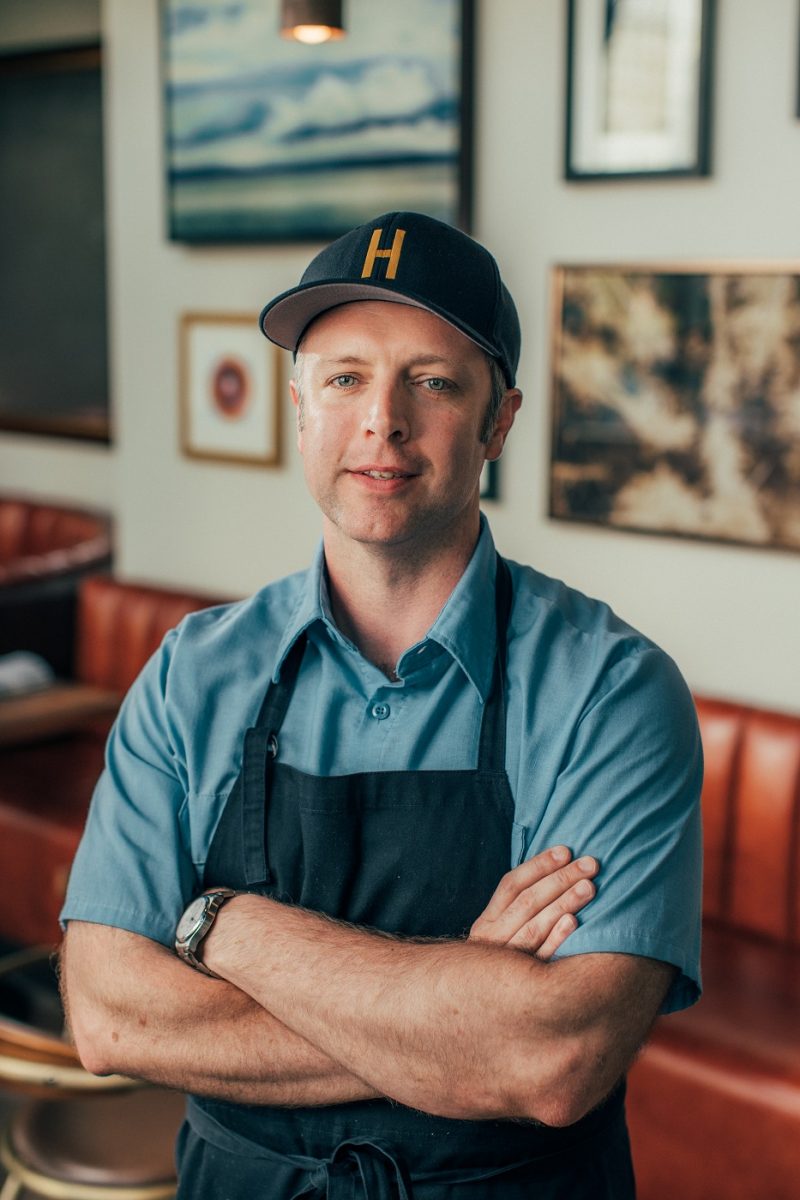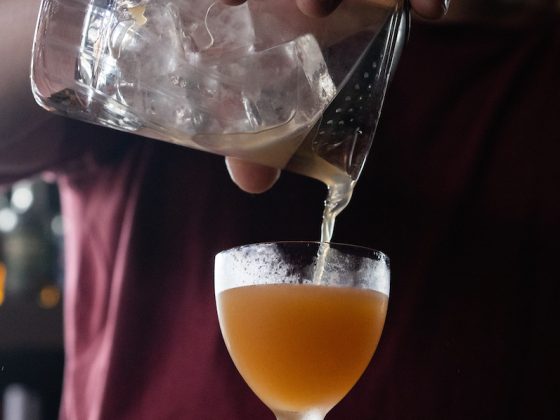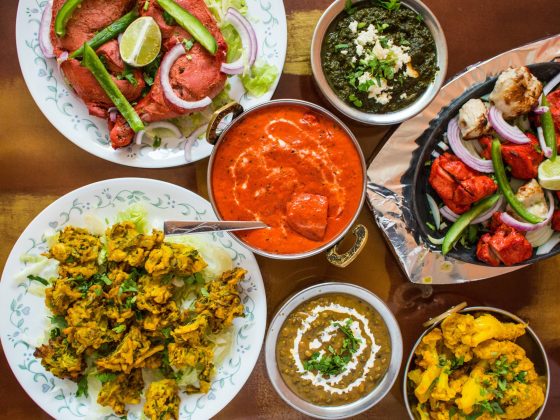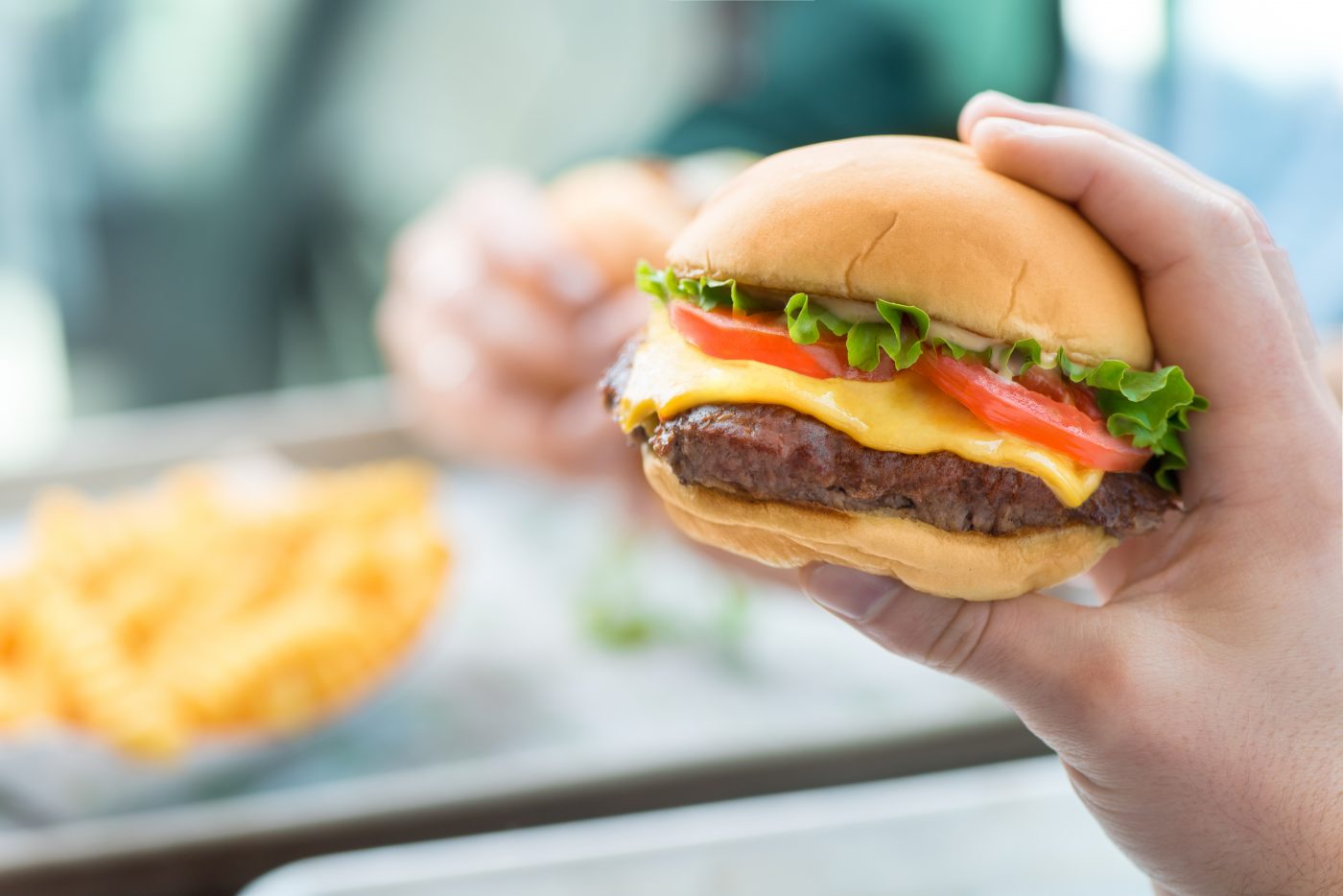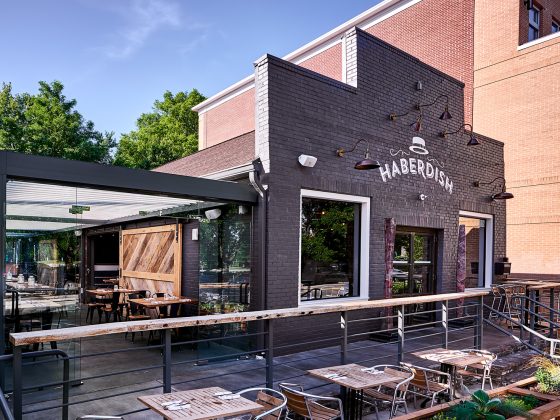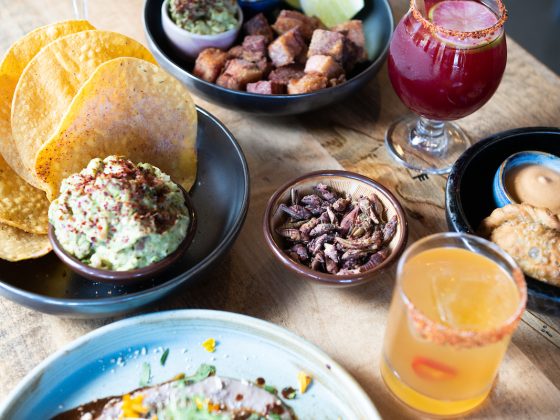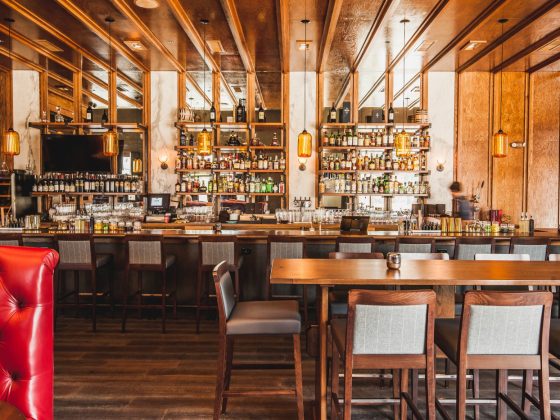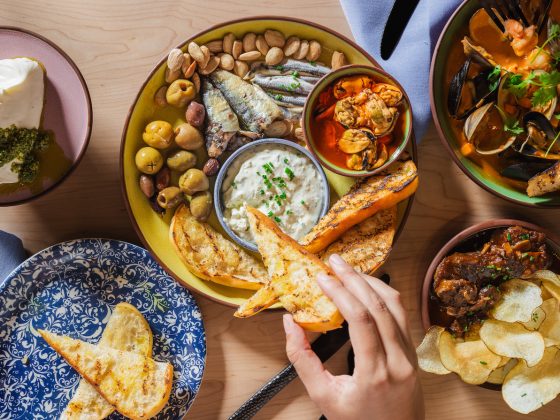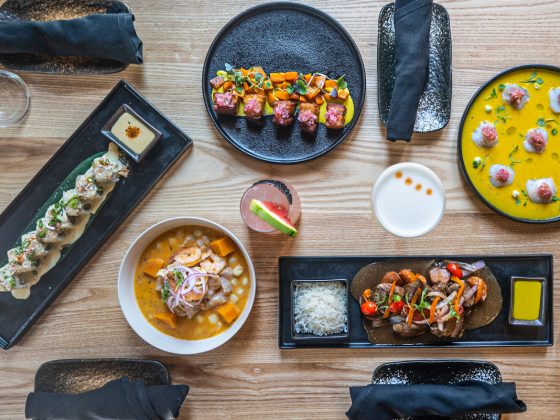In early fall of 2017, our publisher, Brett, and I walked into the first floor of the Ascent building on Poplar Street in Uptown for a quick meeting with an Asheville chef. His new concept, a farm-to-table-style restaurant, was starting to create some buzz and we were interested in seeing what was blossoming for ourselves.
The chef, William Dissen, was, from what I’d heard, opening something that sounded a bit out of step with his location of choice, a zone of the city once better known as a graveyard for foodies. That in mind, I harbored high hopes that this chef would tell me what I wanted to hear: that what he would usher in was to be something creative, new, culturally different. I couldn’t help hope for envelope-pushing in Uptown, not cookie-cutter.
The garage where we parked was empty, the space housing the restaurant nothing short of a full-on construction zone. Of course, the potential was clear: The not-yet-born Haymaker, a joint-effort with Dissen’s longtime grade-school friend and business partner, Beau McIntosh, had a barely built mezzanine facing Romare Bearden and BB&T Ballpark, high ceilings and expansive windows, a large brick oven, a chef’s table in the making. Chef William Dissen himself, also of downtown Asheville’s The Market Place, was clearly in the thick of things, multitasking and managing a group of what looked like everything from laborers to investors.
When it came time to walk us through, Dissen’s focus snapped back to present: The vision he’d formed behind Haymaker was clear, and so was his intent for the city of Charlotte. He seemed excited and singularly-focused, and I left that meeting certain of one thing: There was definitely something here.

That next time I see Dissen, the heat of late spring teetering into summer has fully descended, and Haymaker has been opened for around two months. Now, in 2018, a rush of restaurants has made the food landscape from the year past pale in comparison, and Haymaker has stood at the fore. For weeks, Dissen and I exchanged a slew of emails for plans that were broken and made again, as the real chaos that is a new restaurant set in around his team with a force.
When we finally pick a time, it’s to walk into a wholly different, polished place. The meeting falls only a few short days following the shockwaves sent around the globe by Chef Anthony Bourdain’s death. The ripples seemed to have been felt throughout the culinary world in particular, a certain intimate familiarity with Bourdain’s lifestyle and fate discomfiting many in that industry. Dissen’s thoughtfulness on the subject reminds me of what I like so much about his approach. Quietly, he suggests that in a restaurant such as his, underscored by such agentic dedication to sustainable food and sourcing, that Bourdain’s death is one more reminder to give that much intention (and then some) to creating “sustainability” for the food industry’s human beings, a business that can foster a… rough-and-tumble existence.
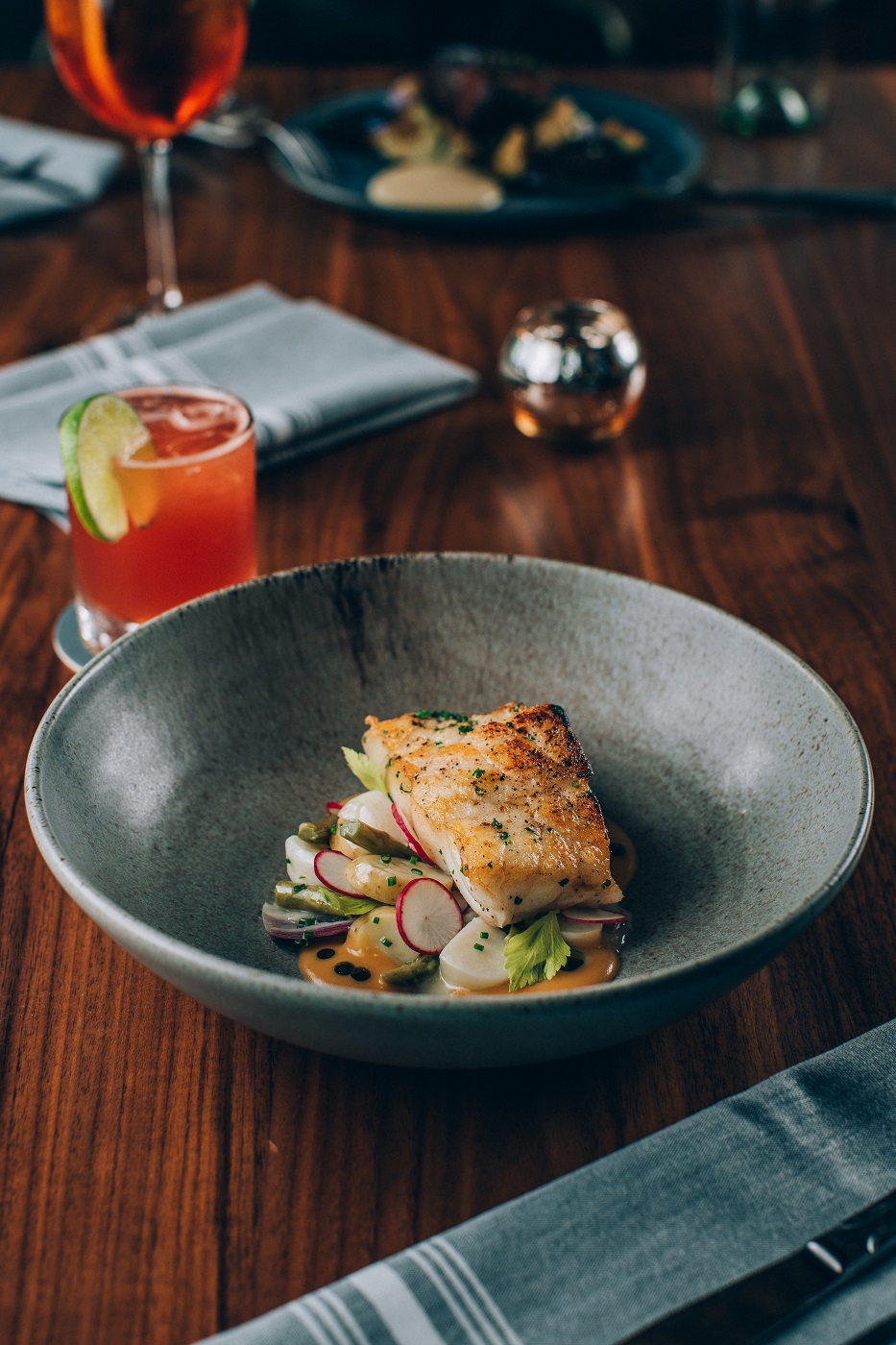
William Dissen, raised in West Virginia, got into the industry young, working his way up the ranks (dishwasher, first, naturally) through high school and college. Post-grad, he spent time in New York at the Culinary Institute of America (he also completed grad school at USC) and eventually made his way back to West Virginia to work at the prestigious Greenbrier Resort. Dissen really got his chops a few years after the Greenbrier, when he moved to the culinary darling of the south to work with Chefs Donald Barickman and Craig Deihl at Cypress Restaurant in Charleston. His next professional move was taking over Asheville’s The Market Place. Since then, he has put his name on Chef Billy D’s Fried Chicken, at the NC Zoo, too.
Dissen names his grandparents’ West Virginia farm as his primary influence, a place where his folks “truly lived off the land.” There, they gardened, foraged, hunted, fished, canned, picked, fermented, and cured, acts performed lovingly and meticulously so summer foods could carry the family through the winter season. He has purposefully interwoven that same care into his own kitchens.
With Haymaker—the colloquial name for a farmer, a popular cocktail, and, of course, the infamous knockout —open and running, Dissen is splitting his time between Asheville and Charlotte (not to mention splitting time with his family and young children), keeping both his eateries running smoothly and putting out the proverbial—and potentially literal—fires.
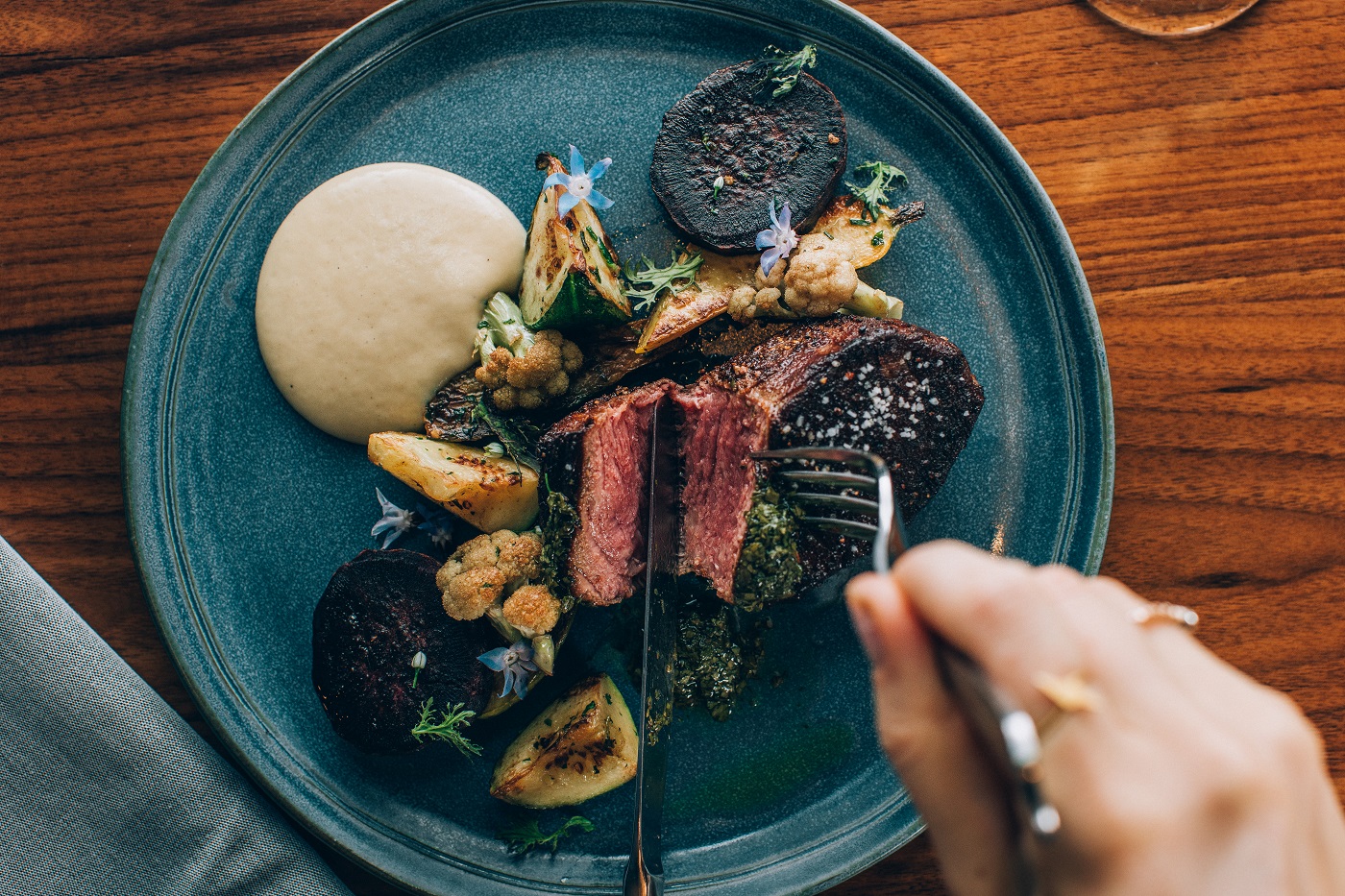
Haymaker has, at its essence, the same ethos that pervades the very Ashevillian Market Place, but its execution is unique. The restaurant’s aesthetic is unpretentious, but sleekly stylish and totally cohesive. It’s a look that’s more Charleston than it is classically Charlotte.
Still, it embodies what everything Dissen touches does: two feet firmly in the farm-to-table world, with an eye on everything from seafood sustainability to conserving the energy used to power the restaurant each day. The menu is shaped by what Dissen’s farms can deliver.
“We focus on cooking in the moment,” he says. “That means we keep our finger on the pulse of our farmers to know what they are growing and harvesting so we can adapt the bounty of their gardens to our menus. We use a plethora of local farms and artisan producers to create our menus, meaning our food is always going to be as fresh as possible with fruits and vegetables straight from the farm to your plate.
It’s our responsibility to take care of our community and the earth around us.
He’s partnered with the Monterey Bay Aquarium’s Seafood Watch, and the James Beard Foundation’s Smart Catch program’s for sustainable seafood.
By morning, Haymaker is a cozy, stylish coffee shop with Counter Culture coffee. Pastry Chef Ashley Anna Tuttle makes hand-crafted pastries, biscuits, and a breakfast sandwich of the day. Lunch and dinner are full-menu.

His Chef de Cuisine, Ashley Quick, came from the award-winning JC Holdway in Knoxville, TN and his front of house is under the direction of Brad Grubb, a tenured restaurant professional and advanced sommelier.
And when Dissen is there, there’s a special energy.
“I love making people happy through good food,” he says simply. “Creating a dish from the bounty of the season continues to inspire me and allows us to cook in the moment. Plus, Charlotte’s food scene is on fire right now, with chefs like Joe Kindred, Paul Verica, Chris Coleman, and Matt Krenz. For us, we hope to bring a little flavor from Asheville, combined with our laid-back, farm-fresh approach.”


